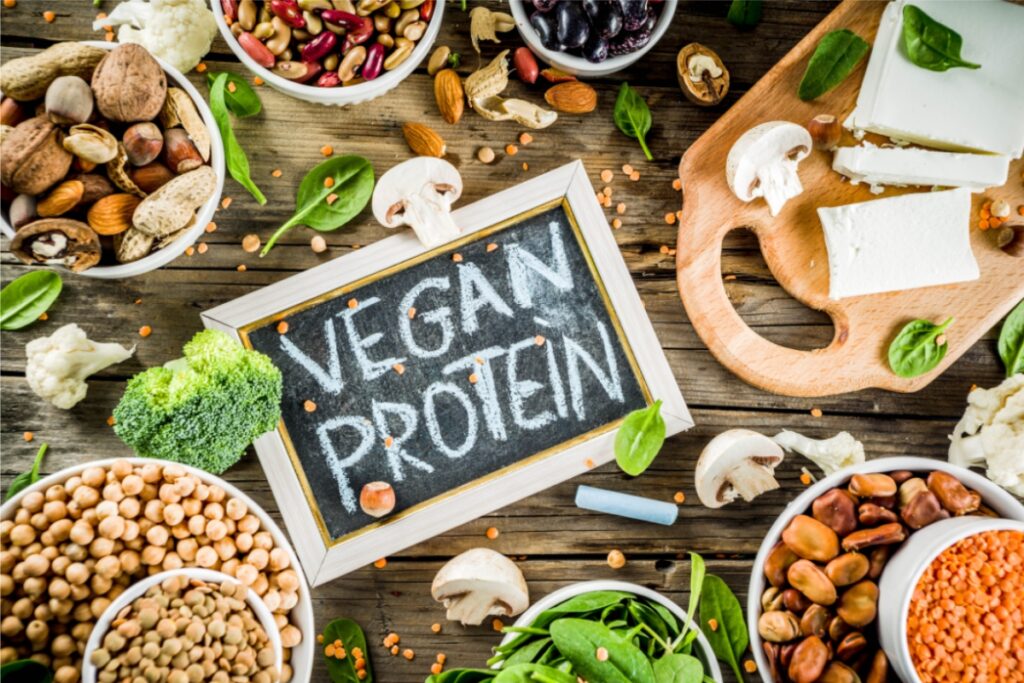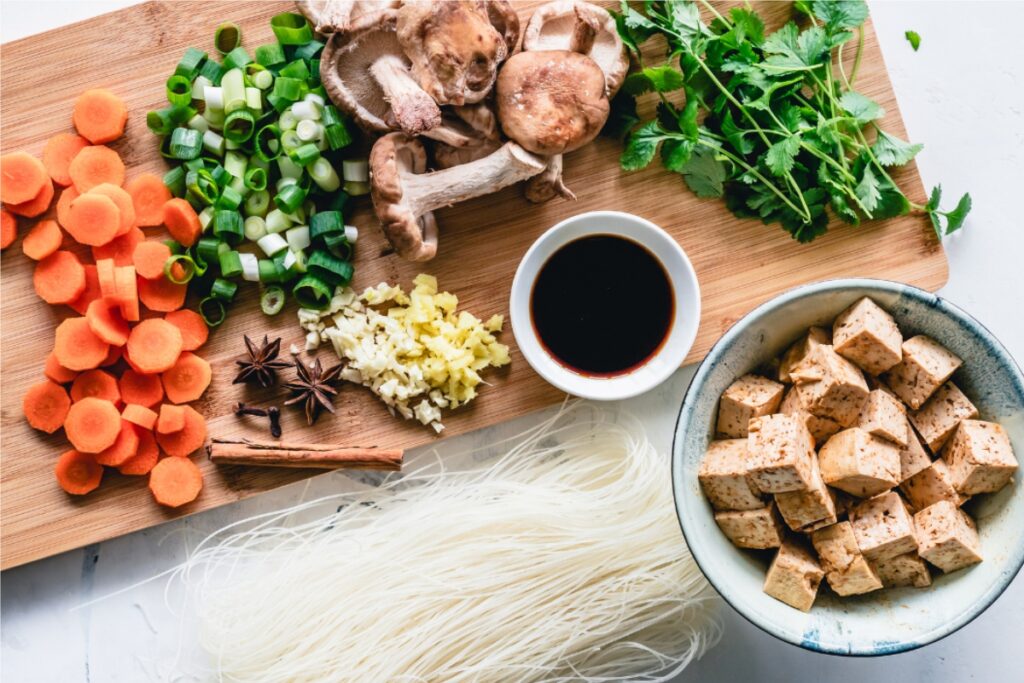Plant-Based Protein Sources in Nuts and Dry Goods
When we think of protein, most of us immediately picture meat, chicken, or eggs. But the truth is, the world of plant-based protein is just as rich and exciting. If you’re looking for healthy and delicious sources of plant protein, nuts and dry goods are among the best choices out there.
This article is a tasty guide for anyone seeking a protein-packed plant-based diet, especially for vegetarians or those looking to cut back on meat. Let’s take a closer look at the top sources of plant protein, from legumes and nuts to grains and plant-based milk.
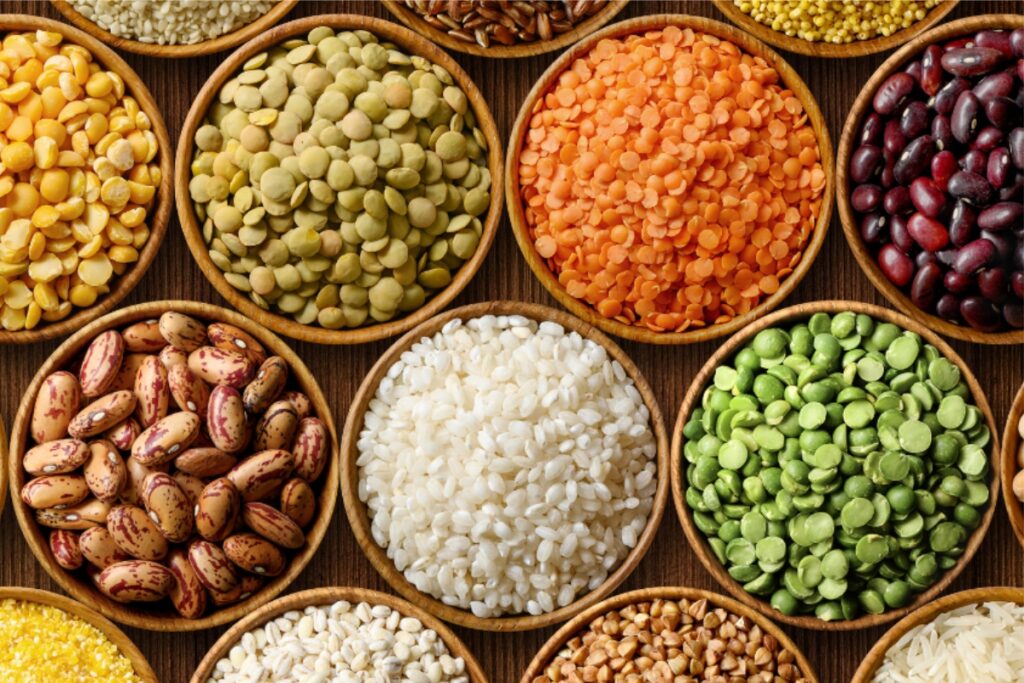
1. Legumes: A Classic Start to Plant Protein
Many everyday foods are surprisingly high in plant-based protein, lentils, beans, chickpeas, and split peas, to name a few. A bowl of cooked lentils packs about 18 grams of protein. They’re hearty, filling, and with a good recipe, they can turn into a satisfying, flavorful meal.
2. Seitan: A Meaty-Looking Protein
If you’re in the mood for something a little different, seitan is a great pick. Made from wheat gluten, it delivers around 25 grams of protein per 100 grams. With its chewy, meat-like texture, it’s a favorite in stir-fries and grilled dishes.
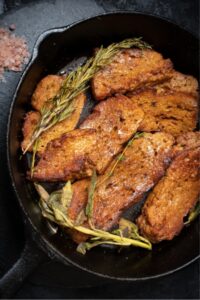
3. Tofu & Tempeh: Soy Protein Staples
Soy is considered one of the most complete plant-based protein sources. Tofu has a soft texture and absorbs the flavor of whatever it’s cooked with. Tempeh, which is fermented, has a stronger flavor and a more bread-like texture. Both are rich in protein, calcium, and iron, making them excellent additions to a plant-forward diet.
Nuts and Dry Goods: Delicious and Nutritious
Now we come to one of the tastiest plant-based protein sources: Nuts and dry goods!
- Almonds: About 21g of protein per 100g. Great for snacking, energy-boosting, and full of flavor.
- Pistachios: With 20g of protein per 100g, they’re a golden pick, packed with antioxidants and vitamins.
- Cashews: Creamy, soft, and around 18g of protein. A good source of magnesium and zinc.
- Walnuts: Lower in protein but rich in omega-3s, perfect for brain and heart health.
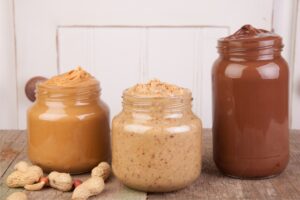
Hazelnuts: Roughly 15g of protein and a rich, aromatic flavor.- Peanuts: Often considered both a legume and a nut, but what matters most is the 25g of protein they offer!
Enjoy them raw, roasted, or mixed into salads, yogurt, or smoothies. Nut butters like almond or peanut butter are also a delicious way to get more plant protein in your day.
Seeds and Whole Grains
Some seeds -like chia, flax, and hemp- are loaded with protein, fiber, and healthy fats. Just one tablespoon of chia seeds can keep you energized for hours. They work beautifully in puddings, yogurt, or even sprinkled over toast.
Plant-based protein isn’t just about nuts and seeds, whole grains like quinoa, oats, bulgur, and brown rice all bring something to the table. Quinoa, in particular, is a complete protein, meaning it contains all the essential amino acids your body needs.
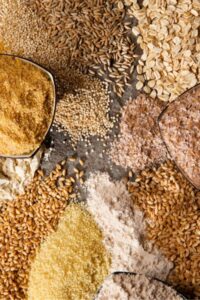
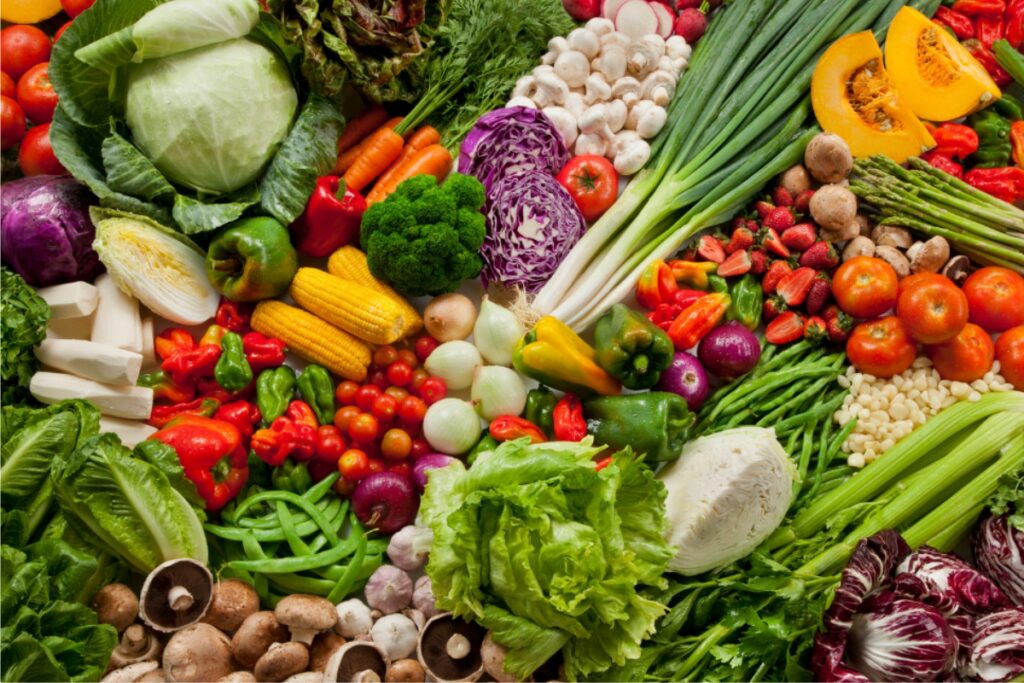
Veggies: The Unsung Heroes
While they might not be protein powerhouses, vegetables like broccoli, green peas, and spinach still contribute valuable amounts of plant-based protein. Alongside other sources, they help round out a well-balanced diet.
Plant-Based Milk: A Light and Nourishing Choice
Plant-based milks like almond milk, soy milk, and oat milk are now popular alternatives to dairy. Many are fortified with protein and essential vitamins, making them a great option for those seeking a lighter, gentler source of plant-based protein.
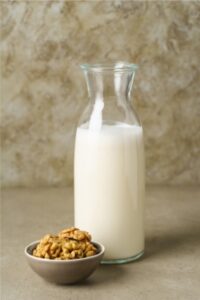
To Wrap It Up
With so many diverse and delicious plant-based protein options, there’s no need to worry about getting enough protein. Nuts and dry goods aren’t just tasty snacks; they’re the backbone of a healthy plant-based lifestyle. Next time you’re craving a snack, skip the chips and grab a handful of almonds, hazelnuts, or pistachios instead. Even small changes like these can be big steps toward healthier living.
Plant-based protein isn’t just a dietary choice; it’s a lifestyle, good for your body and the planet.
